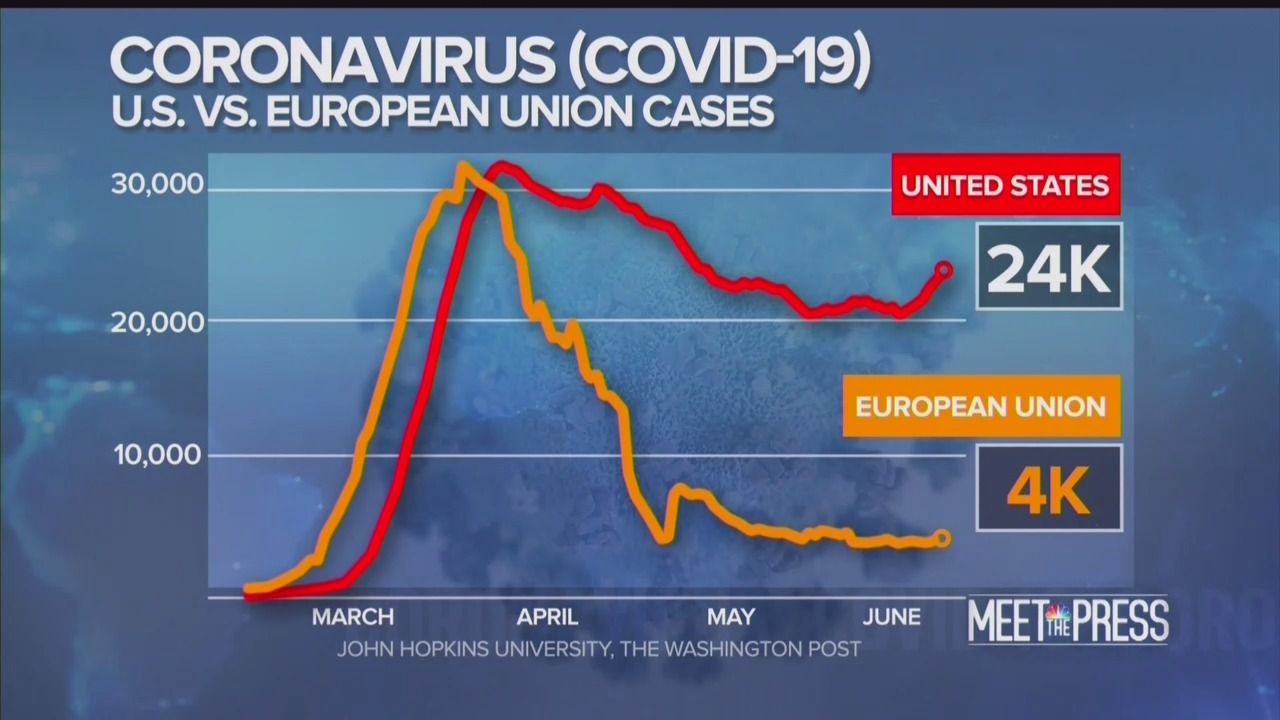Infectious-disease expert says coronavirus spread unlikely to slow in summer or fall
Add Axios as your preferred source to
see more of our stories on Google.
Michael Osterholm, director of the Center for Infectious Disease Research and Policy at the University of Minnesota, told NBC's "Meet the Press" Sunday that he does not believe the coronavirus pandemic in the United States will ease over the summer or in the fall.
Driving the news: The country on Saturday reported more than 33,000 new cases of the coronavirus — the highest total since May 1 — despite claims from Trump administration officials that concerns over a second wave of the virus are "overblown." Osterholm countered that he believes a second or third wave of coronavirus is unlikely because the first wave has yet to slow down.
What he's saying: "I'm actually of the mind right now — I think this is more like a forest fire. I don't think that this is going to slow down," he said. "Wherever there's wood to burn, this fire is going to burn, and right now we have a lot of susceptible people."
- Osterholm added that he does not think the influenza model of multiple waves applies to the coronavirus outbreak in the U.S.
- "Right now, I don't see this slowing down through the summer or into the fall. I don't think we're going to see one, two and three waves. I think we're just going to see one very, very difficult forest fire of cases."
The big picture: As of Sunday afternoon, the country has reported more than 2.2 million coronavirus cases — the highest caseload in the world — and has suffered at least 119,744 deaths from the virus.
- The European Union, which has a population of around 446 million, is seeing average new confirmed case numbers of around 4,000 per day, compared to about 24,000 for the U.S.
- This is at least in part attributable to increased testing by the U.S., but there are surges in infections in several states that outpace the growth in testing. The U.S., which has a total population of around 328 million, has conducted around 26 million coronavirus tests since the beginning of the pandemic.

Go deeper: Navarro says Trump's call for less coronavirus testing was "tongue-in-cheek"
